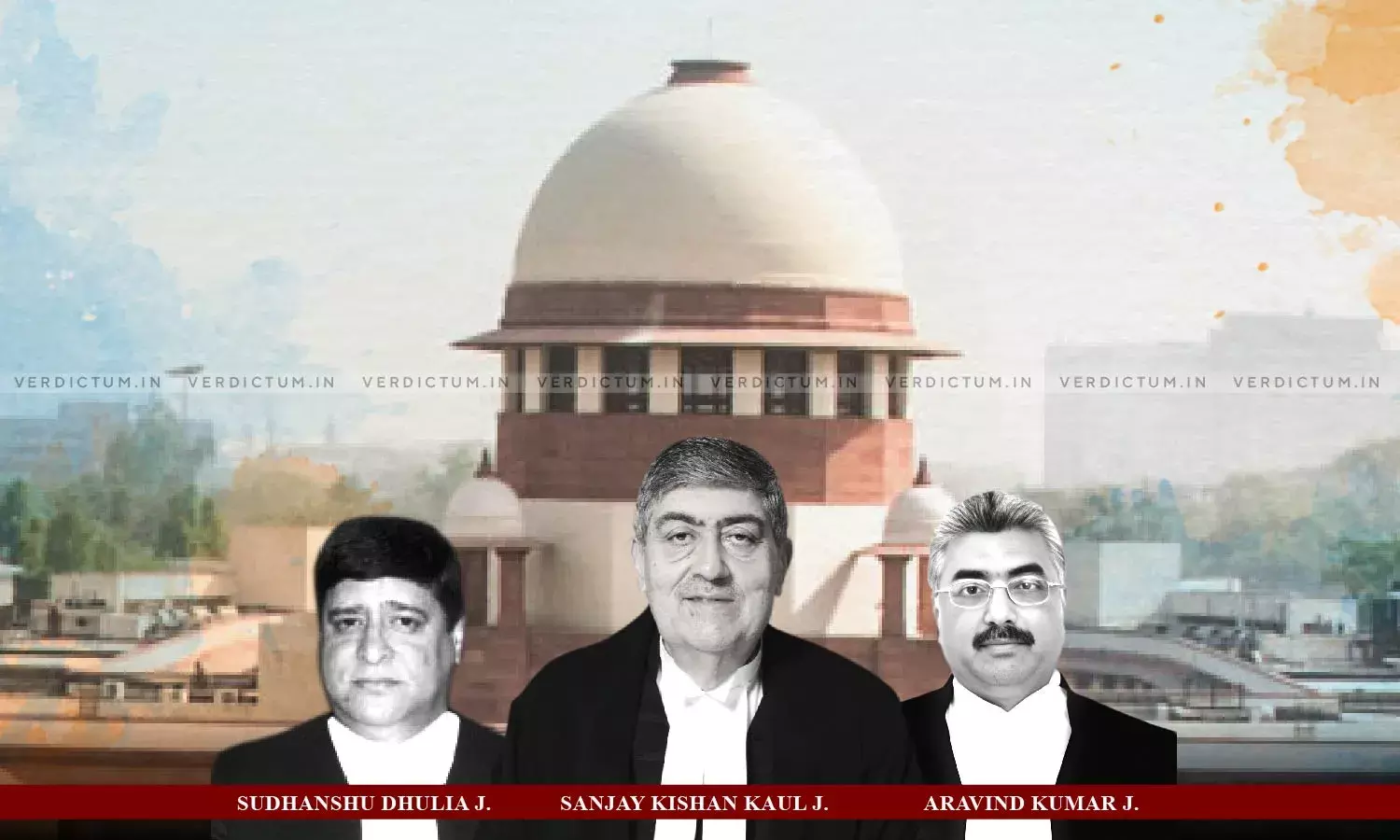Yet Another Endeavour To Wriggle Out Of Payment Obligations: Supreme Court Rejects Bid To Reopen Settled Matters In Garb Of ‘All Future Disputes’
The Supreme Court held that the order allowing the respondent to reopen settled matters and initiate another round of litigation was not sustainable. The Court noted that despite previous court orders specifying payment obligations, the respondent repeatedly attempted to evade payments. The Court reiterated that it did not preclude the respondents from raising ‘all future disputes’ but that cannot be to unsettle the effect on the main judgment abundantly clarified from time to time. The respondent had filed a petition before the Regulatory Commission seeking directions against the appellant, including a refund of the principal amount, coal quality reports, and late payment surcharge. The appellant objected to the maintainability of this petition, arguing that the issues raised had already been settled. The impugned order, dated April 06, 2022, maintained the petition filed by the respondent, allowing another round of litigation.
A three judge Bench of Justice Sanjay Kishan Kaul, Justice Sudhanshu Dhulia and Justice Aravind Kumar held that, “We have, thus, no hesitation in coming to the conclusion that the impugned order, innocuous as it may seem, is not sustainable and this is yet another endeavour of the respondent to wriggle out of its obligation under the judgment dated 05.10.2017, repeatedly explained by various orders. This kind of endeavour can neither be appreciated nor left without consequences thereof.”
The dispute centered around the recovery of deductions of monthly tariff by the respondent under the Electricity Act, 2003. The matter had been adjudicated by various courts, including the Supreme Court, with specific directions given in the judgment dated October 05, 2017. The Supreme Court had clarified that the appellant (Nabha Power Limited) was entitled to the washing cost of coal, transportation from the mine site to the project site, and the Gross Calorific Value (GCV) of the coal would be taken at the project site. The respondent (Punjab State Power Corporation Limited) was directed to remit the amount within three months from the date of the order, failing which it would accrue interest at 12% per annum.
Despite these orders, the respondent did not comply, leading to Contempt Petitions and multiple proceedings. The respondent made various attempts to delay payments, including filing petitions and review applications, all of which were dismissed.
The respondent had raised a fresh dispute concerning the quality and cost of washed coal. The Supreme Court, in an order dated March 09, 2021, had allowed the respondent to raise "all future disputes." However, the court clarified that this liberty did not extend to revisiting the issues already settled by previous judgments and orders. The payments made were based on the court's clear directions, and any attempt to challenge these settled matters would not be permissible.
Senior Advocate Maninder Singh appeared for the Appellant and Advocate Nikunj Dayal appeared for the Respondent.
The Supreme Court found that the same issues were being raised repeatedly by the respondent in an attempt to evade payment obligations established by previous court orders. The Court concluded that the impugned order was not sustainable, as it reopened settled matters. The Court said, “we find the same thing being raked up again and again only as an endeavour to not make payments, till in the Contempt proceedings they were compelled to make payment. The liberty granted by the order dated 09.03.2021 cannot be construed to seek refund of the amount paid under the orders passed by this Court from time to time.”
The Court explained that the court allowed the respondents to raise future disputes but not to challenge settled matters from the 2017 judgment. The Court noted the respondents' attempts to avoid consequences by offering payments after contempt proceedings. The impugned order led to more litigation despite the ongoing case since 2017. The Court added, “We are conscious that the impugned order has simply maintained the petition and that would mean another round of litigation, and this is being continuing since the judgment in 2017 for the last six years. Thus, to say that an innocuous order was passed, would not be a correct position, this is more so as we have explained what was meant by ‘all future dispute’.”
The Court emphasized the need to set an example in such cases and decided to award costs to the appellants. The total costs were quantified at Rs. 40.00 lakhs for Nabha Power Limited and Rs. 25.00 lakhs for Talwandi Sabo Power Limited. The appeals were allowed, and the impugned order was set aside with these costs to be paid within four weeks.
Cause Title: Nabha Power Limited v. Punjab State Power Corporation Limited, [2023INSC883]
Click here to read/download Judgment












